Morocco
Morocco basked in US recognition of its sovereignty over Western Sahara Friday after outgoing President Donald Trump changed policy on the decades-old dispute in return for Rabat agreeing to normalise relations with Israel.
For the Polisario Front, which has campaigned for independence for the former Spanish colony since the 1970s, Trump's announcement marked a major setback and drew a promise to fight on until Moroccan forces withdraw.
But crucially, there was no immediate reaction from neighbouring Algeria, Morocco's regional rival and the Polisario's key foreign backer, whose support would be essential for any return to major fighting.
Moroccan Foreign Minister Nasser Bourita hailed US recognition of Western Sahara's "Moroccan identity" as a "historic diplomatic breakthrough".
"Several years of work" had been "crowned with the recognition of the United States, the major power on the (United Nations) Security Council," he told AFP in an interview.
Fellow permanent UNSC member Russia, historically close with Algeria, denounced the US move on Friday.
Deputy Foreign Minister Mikhail Bogdanov called the decision "unilateral" and "a violation of international law".
Morocco's official MAP news agency published commentaries from an array of Moroccan and foreign analysts trumpeting the US announcement as "vindication of the Moroccan cause" and the "beginning of the end for the Polisario gang".
Prince Moulay Hicham Alaoui, a cousin of King Mohammed VI, tweeted his appreciation of the "courageous" decision by Trump.
Support for the Palestinian cause runs deep in Morocco, but criticism of the monarch remains a red line even after a decade of reforms.
- 'Null and void' -
Islamist Prime Minister Saad-Eddine El Othmani, who has repeatedly spoken out against normalising relations with Israel in the past, made no immediate comment.
His adviser Nizar Khairoun welcomed US recognition that "the Sahara is Moroccan" but added: "Israel is an occupying power that usurps the rights of the Palestinians."
He was careful, however, to avoid any direct criticism of the king, who made the agreement to normalise ties with Israel in a telephone call with Trump.
The hashtag "#Normalisation is treason" was among the most popular on social media Friday, but it was far outstripped by the hashtag "#Sahara".
The Polisario dismissed Trump's announcement and vowed to fight on until Moroccan forces withdraw from all of Western Sahara.
"Fighting will continue until the total withdrawal of the Moroccan occupation troops," said Mohamed Salem Ould Salek, foreign minister of the Sahrawi Arab Democratic Republic (SADR), which Polisario leaders proclaimed in 1976.
The US decision was "null and void", Ould Salek said, emphasising that the international community "does not recognise and will not recognise any Moroccan sovereignty over Western Sahara".
Sovereignty "belongs exclusively to the Sahrawi people", he told AFP.
The Polisario had already announced last month that it regarded a 1991 ceasefire as over after Morocco sent troops into a UN-patrolled buffer zone to reopen the road to neighbouring Mauritania, Morocco's sole land link to sub-Saharan Africa.
The Polisario has since claimed that repeated exchanges of fire have taken place along the 2,700-kilometre (1,700-mile) sand barrier that separates the two sides.
The SADR is a member of the African Union, but controls just 20 percent of the territory, mostly empty desert.
The territory's main sources of revenue -- its phosphate deposits and rich Atlantic fisheries -- are all in Moroccan hands.
As a result, the Polisario is heavily dependent on support from Algeria, where it operates rear-bases and runs camps for tens of thousands of Sahrawi refugees.
- 'Political solution' -
The Polisario demands that the UN go ahead with a long-delayed referendum on self-determination that was promised by the Security Council alongside the 1991 ceasefire.
But UN-led talks between the two sides -- also including Algeria and Mauritania -- have remained suspended for months.
The United Nations said Trump's announcement would make no difference to its longstanding position on resolving the dispute.
Former colonial power Spain "rejoiced" at the news of the normalisation of ties between Israel and Morocco, according to Spanish Foreign Minister Arancha Gonzalez Laya.
But Gonzalez Laya added Spain's position on the Israeli-Palestinian conflict and the dispute over Western Sahara was "clear", pointing to Madrid's "respect for UN resolutions as a means of resolving" these matters.
France, Morocco's former colonial ruler, said it too welcomed the resumption of relations between Rabat and Israel, but on Western Sahara, it was "committed to the search for a political solution within the framework of international legality".
France added it considered Moroccan suggestions of autonomy for the region as the basis for "serious" discussion.






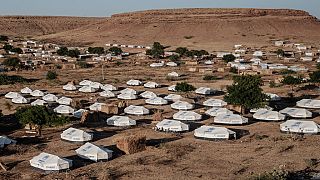
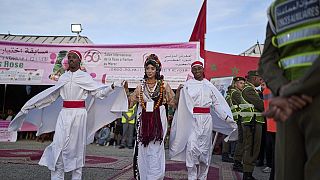

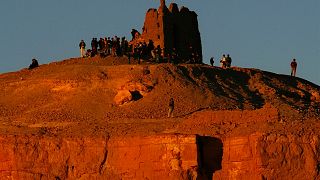
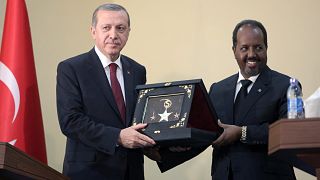
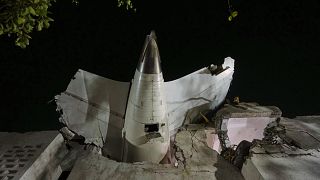

01:55
US contractors say colleagues fired live ammunition at Palestinians seeking food
Go to video
Moroccan museums open doors for free to inspire youth pride and cultural connection
Go to video
Women redefine Gnaoua at Essaouira Festival
01:15
Morocco says 2024 was the hottest year with temperatures reaching 47.7 degrees
Go to video
Morocco to reassess Turkey trade deal amid swelling deficit
01:00
Pix of the Day: June 19, 2025